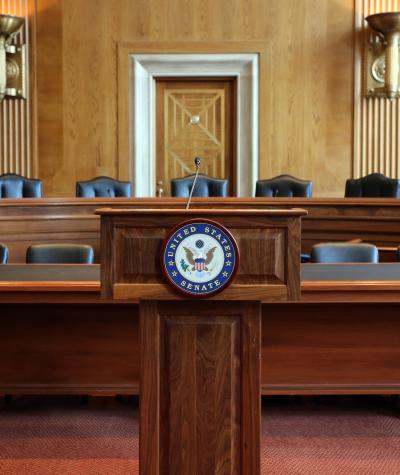Campaign Legal Center (CLC) filed a complaint with the Senate Ethics Committee alleging that 41 Senate candidates have not filed required financial disclosure reports.
Senate hopefuls are required to file financial disclosure reports with the Senate Ethics Committee once they have declared their candidacy and have raised or spent $5,000 in support of their campaign. None of the candidates included in CLC’s complaint have requested or been granted an extension to their filing deadline.
Failure to disclose financial information has always put the public’s trust at risk, but financial disclosure matters more now than ever after former Representative George Santos was expelled following revelations that he misled voters with disclosures he filed as a congressional candidate.
These disclosures contain vital information about candidates’ personal financial interests and background. Voters have a right to know about their prospective representatives’ potential conflicts of interest so that they can make informed decisions at the ballot box.
Moreover, these reports may contain crucial facts that the Senate Ethics Committee and law enforcement rely on to enforce the rules and regulations governing our elections, including information about how Senate campaigns are ultimately funded.
The large-scale failure of Senate candidates to comply with basic disclosure requirements (CLC filed a similar complaint in early February against seven Michigan Senate candidates who failed to file financial disclosure reports) illustrates the need for the Senate Ethics Committee to actively enforce ethics rules.
Public trust in government is dependent on robust enforcement of ethics rules. If the Senate Ethics Committee does not have the will or capacity to enforce essential financial disclosure rules, an independent ethics body like the Office of Congressional Ethics (OCE), which has jurisdiction over the House of Representatives, could help.
Such a body would empower the Senate to enforce disclosure rules intended to build voter confidence that candidates will prioritize their constituents rather than their own personal financial interests or those of special interests.

